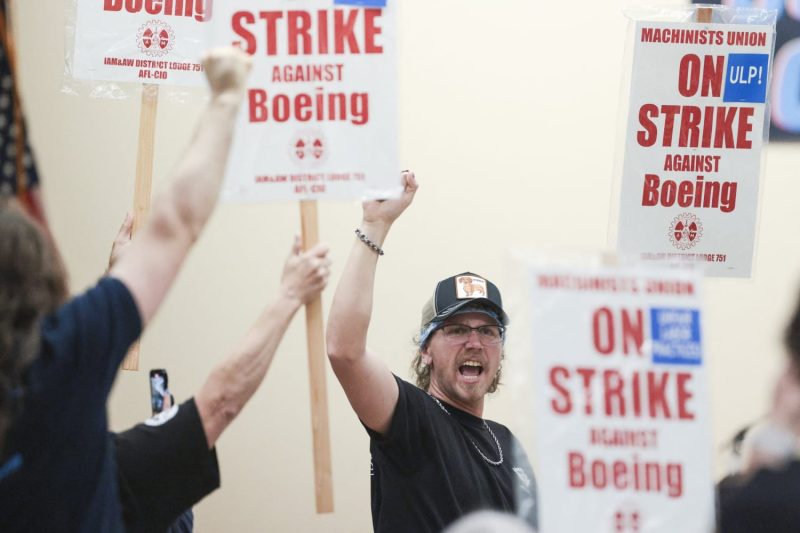
Boeing Factory Workers Stage Massive Strike Amid Contract Rejection
**The Boeing Factory Workers’ Strike: Analysis of a Crucial Labor Dispute**
### Background on the Boeing Factory Workers’ Strike
The recent strike by Boeing factory workers has brought to light significant issues in the labor relations at the company. The strike was initiated after the workers overwhelmingly rejected a contract proposed by Boeing management. This development showcases the tensions and challenges that can arise in labor negotiations between workers and management in large corporations like Boeing.
### Dynamics of the Labor Dispute
The core issue that led to the strike was the contract proposed by Boeing management. The workers considered the terms of the contract to be unsatisfactory and not reflective of their contributions to the company. This perception was a result of various factors, including concerns about wages, benefits, working conditions, and job security.
One of the key points of contention was the disparity between the profits generated by Boeing and the compensation received by the workers. The workers argued that their hard work and dedication were not being adequately rewarded by the company. This disconnect between the financial success of Boeing and the concerns of the workers created a significant rift in the labor negotiations.
Furthermore, the rejection of the contract and the subsequent strike point to broader issues within the company’s labor relations. It indicates a lack of effective communication and understanding between the workers and management, as well as a failure to address the needs and interests of the workforce in a meaningful way.
### Implications of the Strike
The strike of the Boeing factory workers has significant implications for both the company and the broader labor movement. At the company level, the strike disrupts production and operations, leading to potential financial losses and reputational damage for Boeing. It also highlights the need for Boeing management to reassess their approach to labor relations and work towards building a more inclusive and collaborative environment with their employees.
From a broader perspective, the strike raises important questions about the power dynamics between workers and management in large corporations. It underscores the importance of fair and equitable treatment of workers, as well as the need for open and constructive dialogue between all stakeholders involved in labor negotiations.
### Conclusion
In conclusion, the strike by the Boeing factory workers following the rejection of the contract is a significant development that sheds light on the complexities of labor relations in modern corporations. It underscores the importance of addressing the concerns and needs of the workforce to maintain a harmonious and productive work environment. Moving forward, it is crucial for all parties involved to engage in meaningful dialogue and collaboration to resolve disputes and build a more sustainable and equitable labor framework.
